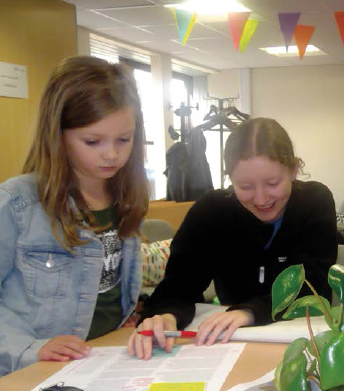Pandemic as portal: challenges and opportunities revealed by the exams debacle
6 October 2020
As the exam diet for 2021 hangs in the balance, Graham Leicester, Director of the International Futures Forum, explores the conundrum of giving out grades for exams that don’t take place and what it might mean for the future of the school system.
Determining examination grades is a complex process, usually hidden from view. The Scottish Qualifications Authority (SQA) is charged with the task of maintaining standards, across subjects and across years.
This year, with no examinations, that task became almost impossible The SQA considered awarding grades according to teachers’ estimates (which they collect every year) but concluded this would not maintain standards and would be inconsistent and unfair.
They instead ‘moderated’ estimated grades to bring the overall pattern into line with previous years. The results announced on 4 August seemed to hit the sweet spot, showing both a modest increase in attainment at all levels (it has been falling for the past four years) and also a narrowing of the so-called ‘attainment gap’ between the most and least affluent areas of Scotland.
By definition, any system is perfectly designed – whether intentionally or not – to produce the results it is producing. The Scottish education system has for years delivered something close to this pattern of results. But replicating the pattern by design proved unconscionable for the Scottish public and, within a week, politically untenable. Ministers soon gave into pressure to honour teacher estimates in all cases.
A complex conundrum – assigning grades for exams that did not take place – has thus been ‘resolved’ in a simple fashion. The consequences have largely been passed to others – schools, universities, colleges, employers, and to young people themselves who now need to make the best of the hand that fortune has dealt them.
There are challenges ahead. For example:
- Students awarded grades above expectation, out of touch with learning and entering a strange, hybrid learning environment at university, may struggle and could drop out without special support. Would it be better for these students not to have started at university at all?
- Gresham’s Law suggests that bad money drives out good. How will standards be restored? Will the 2021 standards be calibrated against 2019 or 2020? Does it matter?
- What about next summer? Will there be examinations, and if not, what are the alternatives? Will we reduce the curriculum to match what can easily be examined, letting the examination tail continue to wag the education dog?
There are also opportunities for deeper inquiry and initiative:
- There are plenty of ways (click to read) to think about assessment beyond the ‘gold standard’ of individual, written examination, and every country is exploring ways to operate under Covid. What can we learn?
- Curriculum for Excellence was intended to broaden school age education to embrace learning to know, to be, to do and to live together. But we are still largely ‘filling buckets’ rather than ‘lighting fires’, as is evident from the simple assumptions in the debate about pupils needing to make up for hours lost in lockdown. In practice many parents and pupils relished their time at home together, did not want to go back to school, and started to learn different things in different ways. Here is an opening for rethinking both how and what we need to learn (click to read).
- If the school system is failing young people, where else might they go for growth, development and fulfilment? Is there something more enticing we can provide beyond yet more formal education or a tight labour market offering insecure, low-paid or unsatisfying jobs? Is this the cohort to trial Basic Income? Is there a new opening for the ‘gap year’, volunteering, other opportunities? Is there life beyond ‘school’?
At IFF we are determined to explore these opportunities and invite others to join us. As Arundhati Roy has written, the pandemic is a portal (click to read), which “we can walk through lightly, with little luggage, ready to imagine another world”.
Graham Leicester is Director of International Futures Forum, a registered charity with a mission to enable people to thrive in powerful times.

About the author
Graham Leicester is Director of the International Futures Forum
Click to learn more

Consultation Work with Children and Young People
Our participative approach ensures children's voices are at the heart of our work
Click to learn more
25 Calls campaign
Find out more about the 25 Calls campaign, view press coverage and read further responses
Click to find out more